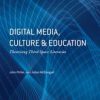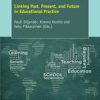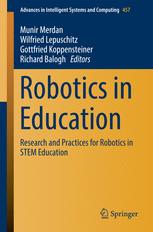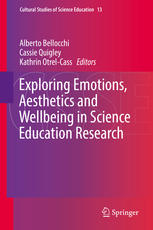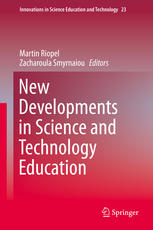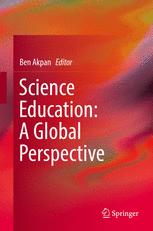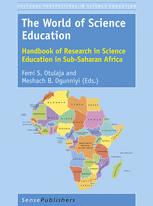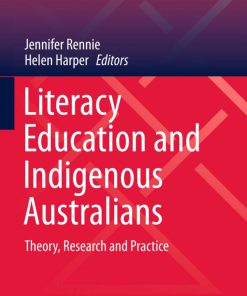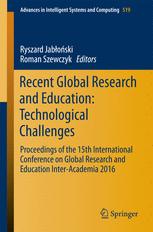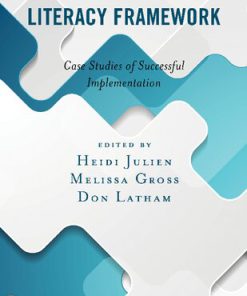Global Developments in Literacy Research for Science Education 1st Edition by Kok Sing Tang, Kristina Danielsson 3319691961 9783319691961
$50.00 Original price was: $50.00.$25.00Current price is: $25.00.
Global Developments in Literacy Research for Science Education 1st Edition by Kok Sing Tang, Kristina Danielsson – Ebook PDF Instant Download/Delivery: 3319691961, 9783319691961
Full download Global Developments in Literacy Research for Science Education 1st Edition after payment
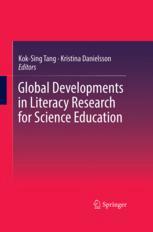
Product details:
ISBN 10: 3319691961
ISBN 13: 9783319691961
Author: Kok-Sing Tang, Kristina Danielsson
This book highlights recent developments in literacy research in science teaching and learning from countries such as Australia, Brazil, China, Finland, Germany, Hong Kong, New Zealand, Norway, Singapore, Spain, South Africa, Sweden, Taiwan, and the United States. It includes multiple topics and perspectives on the role of literacy in enhancing science teaching and learning, such as the struggles faced by students in science literacy learning, case studies and evaluations of classroom-based interventions, and the challenges encountered in the science classrooms. It offers a critical and comprehensive investigation on numerous emerging themes in the area of literacy and science education, including disciplinary literacy, scientific literacy, classroom discourse, multimodality, language and representations of science, and content and language integrated learning (CLIL). The diversity of views and research contexts in this volume presents a useful introductory handbook for academics,researchers, and graduate students working in this specialized niche area. With a wealth of instructional ideas and innovations, it is also highly relevant for teachers and teacher educators seeking to improve science teaching and learning through the use of literacy.
Table of contents:
1. The Expanding Development of Literacy Research in Science Education Around the World
Part 1. National Curriculum and Initiatives
2. The Implementation of Scientific Literacy as Basic Skills in Norway After the School Reform of 2006
3. But I’m Not an English Teacher!: Disciplinary Literacy in Australian Science Classrooms
4. Meeting Disciplinary Literacy Demands in Content Learning: The Singapore Perspective
Part 2. Content and Language Integrated Learning (CLIL) in Science
5. Learning Language and Intercultural Understanding in Science Classes in Germany
6. Supporting English-as-a-Foreign-Language (EFL) Learners’ Science Literacy Development in CLIL: A Genre-Based Approach
7. Language, Literacy and Science Learning for English Language Learners: Teacher Meta Talk Vignettes from a South African Science Classroom
8. The Content-Language Tension for English Language Learners in Two Secondary Science Classrooms
Part 3. Science Classroom Literacy Practices
9. A Case Study of Literacy Teaching in Six Middle- and High-School Science Classes in New Zealand
10. Analyzing Discursive Interactions in Science Classrooms to Characterize Teaching Strategies Adopted by Teachers in Lessons on Environmental Themes
11. Measuring Time. Multilingual Elementary School Students’ Meaning-Making in Physics
12. Meaning-Making in a Secondary Science Classroom: A Systemic Functional Multimodal Discourse Analysis
Part 4. Science Disciplinary Literacy Challenges
13. Literacy Challenges in Chemistry: A Multimodal Analysis of Symbolic Formulas
14. Gains and Losses: Metaphors in Chemistry Classrooms
15. Image Design for Enhancing Science Learning: Helping Students Build Taxonomic Meanings with Salient Tree Structure Images
Part 5. Disciplinary Literacy and Science Inquiry
16. Inquiry-Based Science and Literacy: Improving a Teaching Model Through Practice-Based Classroom Research
17. Infusing Literacy into an Inquiry Instructional Model to Support Students’ Construction of Scientific Explanations
18. Representation Construction as a Core Science Disciplinary Literacy
Part 6. Science Teacher Development
19. Science and Language Experience Narratives of Pre-Service Primary Teachers Learning to Teach Science in Multilingual Contexts
20. Examining Teachers’ Shifting Epistemic Orientations in Improving Students’ Scientific Literacy Through Adoption of the Science Writing Heuristic Approach
21. Developing Students’ Disciplinary Literacy? The Case of University Physics
Part 7. Commentary
22. Commentary on the Expanding Development of Literacy Research in Science Education
People also search:
global literacy statistics
why is literacy a global issue
the global literacy project inc
what is the development of literacy the development of
biliteracy research
Tags: Kok Sing Tang, Kristina Danielsson, Global, Developments
You may also like…
Education Studies & Teaching - School Education & Teaching
Education Studies & Teaching
Education Studies & Teaching
New Developments in Science and Technology Education 1st Edition Martin Riopel
Education Studies & Teaching
Science Education A Global Perspective 1st Edition Ben Akpan (Eds.)
Education Studies & Teaching
Education Studies & Teaching - School Education & Teaching
Literacy Education and Indigenous Australians Theory Research and Practice Jennifer Rennie
Reference - Library & Information Science


